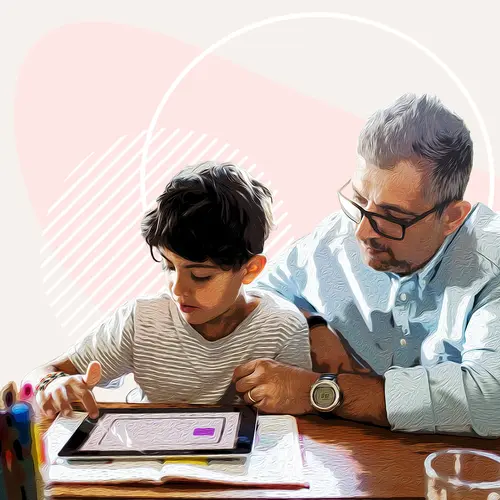If you're a parent reading this, print it out and give it to your teen. If you're a teen, print it out and talk it over with your parents or friends.
Despite widespread assumptions, studies show that most teens don't use drugs. But that doesn't mean you won't face pressures to take drugs. Here are some tips on how to resist them:
- Rehearse what you'll say if you're offered drugs. Don't get caught by surprise when someone asks if you want to get high. Decide how you want to respond now. Keep in mind that saying “no” doesn't need to be a big deal. You don't have to give your reasons. A simple “no, thanks” will probably work.
- Think ahead and avoid trouble. If you know that drugs and alcohol will be used at a classmate's party, it's best not to go. If someone you know asks for a ride to a sketchy part of town but won't say why, they may be planning to buy drugs. If you can anticipate situations where you know you'll be exposed to drugs and alcohol, you can learn to avoid them before you get drawn in.
- Choose your close friends wisely. Sometimes, people you know will pressure you to use drugs and alcohol. Some may be unhappy and want company. But you should have a better future in mind for yourself. Be prepared to distance yourself from friends who use drugs and want to drag you down their path. If you have a friend who won't respect the decision you've made, they are not a friend.
- Don't be a supplier. Even if you're not using drugs and alcohol yourself, people you know might push you to get substances for them -- maybe by sneaking cough medicine from home or shoplifting it. Don’t let that happen.
- Find better ways to deal with stress and have fun. Sometimes, you may feel like an outsider if you don't use drugs. That's OK. (After all, you're in the majority.) So figure out ways to meet more of the people who are enjoying themselves without using drugs. Get involved with music, try out for the school play, take up a sport, join a school club, or volunteer in your community.
- Get involved. Taking a stand against drugs and alcohol is often just a personal decision, and you can keep it that way. But if you feel a lot of passion about the issue, go public. Look into local anti-drug community coalitions. You can find information about them from CADCA (www.cadca.org, 800-54-CADCA). Community coalitions are groups of students, teachers, parents, and local leaders who are working to keep their communities drug-free. They’re a great way to socialize with people who share your beliefs. You can meet friends, plan drug-free parties and activities, and learn ways to help out kids who have questions about drug use.
A Tool for Smart Decision-Making
WebMD has provided a scenario with questions teens can answer to work through some of the situations they might face. Use it as a template or create other scenarios teens may encounter.
Scenario: You're at a friend's house with some other kids you don't know well. One pulls out some cough medicine and says, “Let’s see what happens if we all take these.” It seems like everyone else agrees with the idea. How about you? What are you going to do?
Options. Read the questions across the top of the diagram and mark your answers in the boxes: yes, no, or maybe. (The diagram has been started for you.) Continue on through all the choices and questions. There’s some space at the bottom for you to write in your own options if you like. Then circle your best choice.
Your Options | Questions to Ask Yourself | |||
Will this decision keep me safe? | Will the other kids make fun of me? | Will I lose real friends? | Will I regret this decision later? | |
1. Leave immediately and walk home, so long as you are in a safe area.
| Yes
| Maybe
| ||
2. Tell everyone about the dangers of medicine abuse.
| ||||
3. Threaten to call the police.
| ||||
4. Go wait outside and call a parent to pick you up.
| ||||
5. Give in and try some of the medicine, but tell yourself it will just be this one time.
| ||||
| 6. Go along with the group, but tell a school counselor what happened the next school day. | ||||


